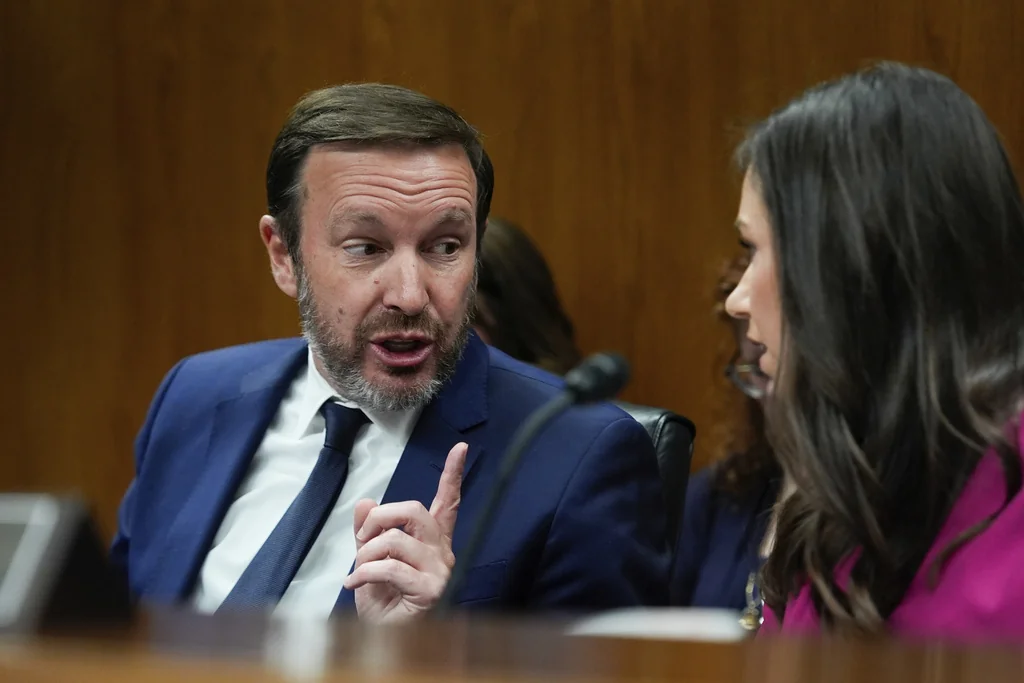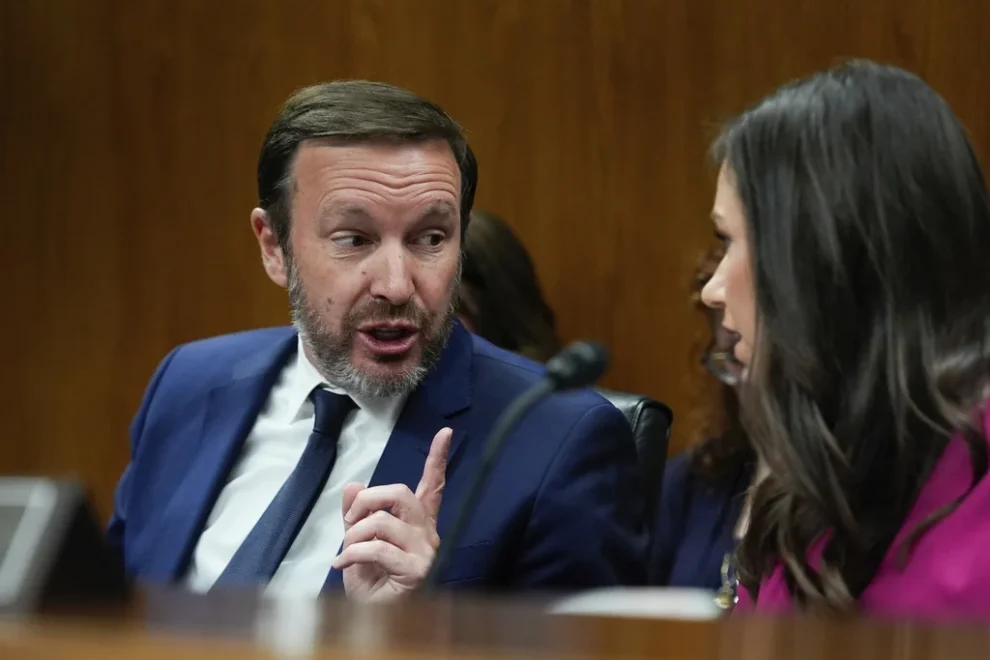Democrats will be put to the test next week when Senate Republicans bring to a vote the first of several bipartisan government funding bills for next fiscal year.
But fresh off a Republican-controlled Congress clawing back $9 billion in DOGE-inspired cuts from money that both parties previously approved, Democrats are at a crossroads regarding whether to provide critical votes to fund the government without GOP assurances portions won’t be rescinded.
“They stabbed us in the back, and if they commit to us that they won’t do that again, then we might be able to write bills,” said Sen. Chris Murphy (D-CT), a member of leadership and the Appropriations Committee. “The vibe today is, ‘we’re going to trade baseball cards with you, and then we’re going to sneak into your house later today and take our cards back.’”
Murphy, visibly irritated, added: “They’re literally telling us that they are going to violate the bipartisan deals immediately. What do you do with that?”
The consternation over how to move forward has become a point of contention both internally among Democrats and in conversations with their GOP colleagues. Appropriators Murphy and Sen. Katie Britt (R-AL) engaged Thursday in what appeared to be a tense floor conversation shortly before the Democrat teed off on Republicans.
“We debated it at length in the [Appropriations] Committee,” Senate Minority Whip Dick Durbin (D-IL) told the Washington Examiner. “We’re trying our best to make a bipartisan appropriations process. We’ll see.”

Republicans are largely brushing off the government shutdown threats that have been led by Sen. Chuck Schumer (D-NY), messaging that the Democratic leader has softened slightly in recent days as the party debates next steps to counter a Republican-dominated Washington.
To complicate matters further, White House budget office director Russ Vought batted down demands for assurances from Democrats by saying the appropriations process “has to be less bipartisan.” The White House tried to clean up the remarks by claiming Vought meant the opposite.
Senate Majority Leader John Thune (R-SD) conceded that less bipartisanship would undercut efforts to overcome the 60-vote filibuster, a threshold that the White House rescission request was able to avoid.
“That runs contrary to what the math tells us around here,” Thune said of Vought’s remarks. “We need 60 on [appropriations] bills, 60 to fund the government. And my expectation is, at least I hope, we plan to move [appropriations] bills that will have cooperation.”
But Democrats say the onus is on Republicans to extend offers that convince them back to the negotiating table, such as public assurances or potential stipulations inked into funding bills.
“The idea that this is on Democrats is just absolutely preposterous,” Sen. Brian Schatz (D-HI), a leadership member, told the Washington Examiner. “Republicans are presiding over the evisceration of their own power, and they’ve been politically lobotomized. I’m done trying to sort them. They have to sort themselves.”
The $9 billion rescission package took back foreign aid money for global health programs and public broadcast funding that Republicans assailed as government waste, some of which they said was allocated by federal bureaucrats for inappropriate programs. The tranche amounted to only 0.10% of the $7 trillion budget, leaving many conservative fiscal hawks admittedly desiring steeper cuts with more rescissions after the 2026 government funding process that’s due Oct. 1.
“If 10 Democrats don’t want to work with us on cutting out all this NPR funding when they’re actively, overtly partisan, then we have a responsibility to act on our own,” Sen. Eric Schmitt (R-MO), who was tapped by the White House to lead the rescission vote-wrangling effort, told the Washington Examiner. “That’s what we did.”
But a recent schism between a group of Senate Republicans, including several close allies to President Donald Trump, tested the bounds in which GOP lawmakers were willing to let the administration alter how Congress intended appropriated funds to be used. The Department of Education, which Trump is seeking to dismantle, has since released money for state education programs after alarms were raised by senators that it was improperly being withheld, according to Sen. Shelley Moore Capito (R-WV).
TRUMP’S $9 BILLION DOGE CUTS PASS HOUSE AS JOHNSON TEMPERS GOP DIVISIONS OVER EPSTEIN VOTES
“When we have authorized and appropriated to these [states], the grants have gone out, and now all of a sudden, they mysteriously paused. Let us know what’s going on,” Sen. Lisa Murkowski (R-AK) told the Washington Examiner. “It’s not right to our school districts to be held in this state of limbo.”
In a small but positive step toward a funding solution between the two parties, the Senate Appropriations Committee on Thursday advanced with bipartisan support its latest two measures that comprise the 12-bill annual budget.
























